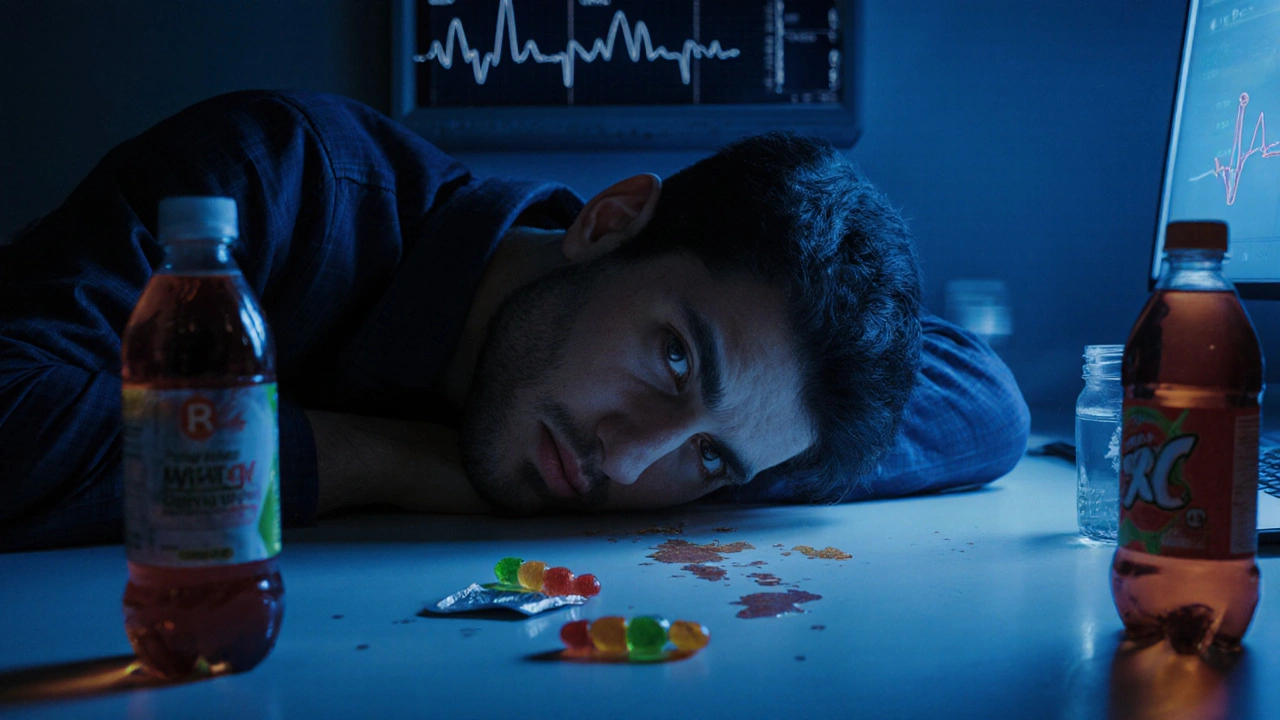Caffeine Tolerance: What It Is, How It Builds, and How to Reset It
When you need a boost but your usual energy drink doesn’t do the trick anymore, you’re not imagining it—you’ve built up caffeine tolerance, a physiological adaptation where your body needs more caffeine to feel the same effects. Also known as caffeine dependence, it happens when your brain adjusts to regular caffeine by making more adenosine receptors, which makes you feel tired unless you keep increasing your dose. This isn’t just about feeling sluggish—it’s your nervous system rewiring itself to cope with the constant stimulant.
It’s not just energy drinks that cause this. Coffee, soda, pre-workout powders, even chocolate can contribute. Over time, your body gets used to the caffeine, so you need more to get the same alertness, focus, or energy spike. That’s why someone who drinks one can of an energy drink a day might start needing two, then three. And when you skip it? Headaches, fatigue, irritability—classic caffeine withdrawal, the physical and mental symptoms that appear when someone who regularly consumes caffeine suddenly stops or reduces intake. These symptoms aren’t just inconvenient—they’re proof your body has adapted to relying on caffeine to function normally.
But here’s the good news: caffeine sensitivity, how your body reacts to caffeine based on genetics, metabolism, and usage patterns isn’t permanent. Unlike some substances, caffeine doesn’t permanently damage your system. You can reset it. Cutting back slowly, taking a week off, or switching to lower-caffeine options like green tea can help your receptors return to normal. Some people feel better in just a few days. Others need two weeks. The key is consistency, not perfection.
And it’s not just about feeling more alert. High caffeine tolerance often means you’re consuming more sugar, artificial sweeteners, and additives just to get the same effect. That’s why posts here cover everything from how C4 and Prime affect your body to why a daily Coke Zero might be quietly contributing to your tolerance cycle. You’ll find real advice on reducing intake, managing withdrawal, and finding alternatives that actually work without the crash.
What you’ll find below aren’t just random articles—they’re practical, science-backed guides that connect directly to your experience. Whether you’re wondering why your favorite energy drink doesn’t wake you up anymore, or you’re tired of relying on caffeine just to get through the day, the posts here give you clear steps to take back control.
What happens if you consume 1,000 mg of caffeine? It's not energy-it's a dangerous overload that can spike your heart rate, wreck your sleep, and trigger panic attacks. Here’s what your body actually goes through.

